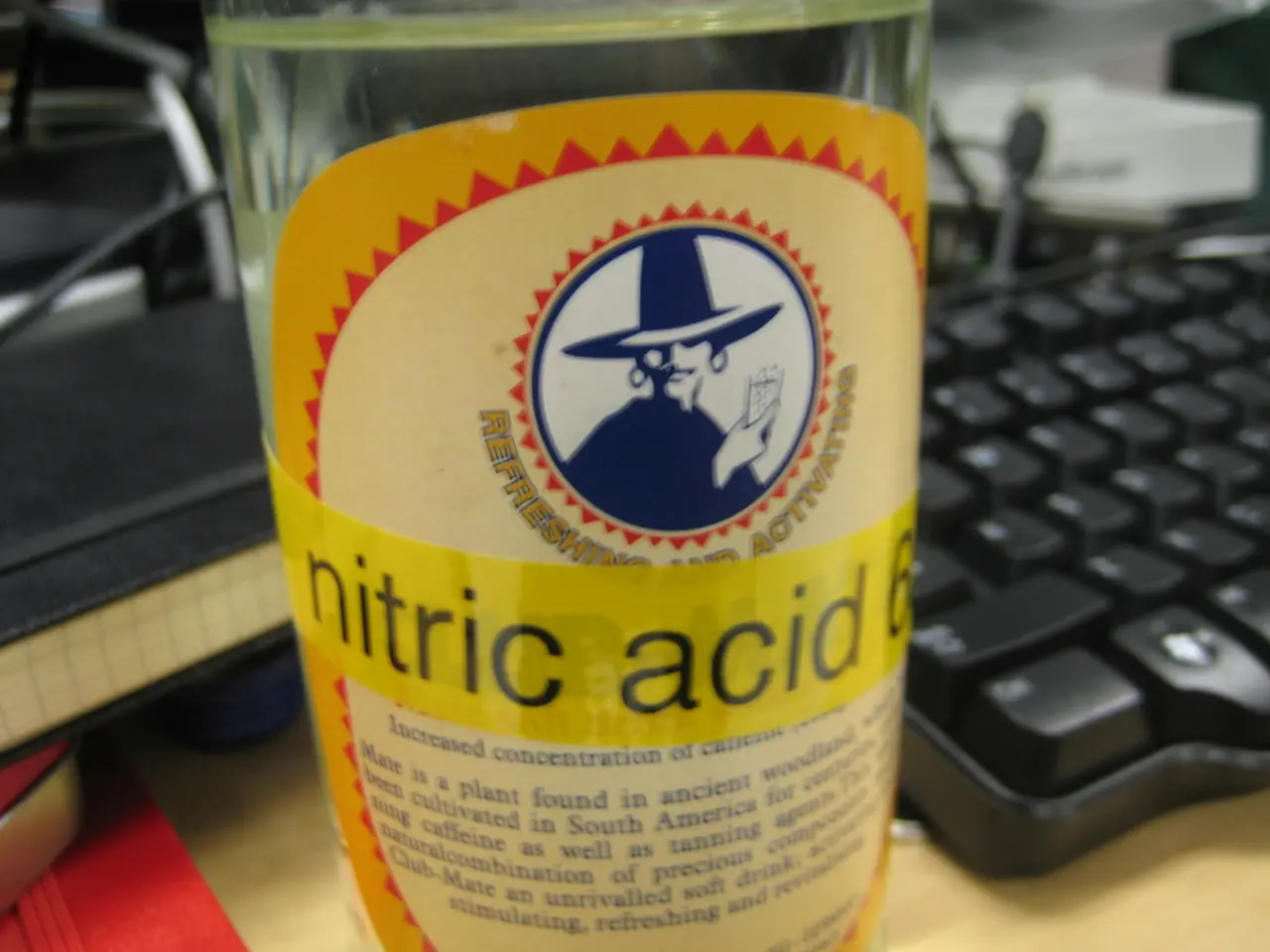Improved Brain Health with Vitamin B3 and Green Tea: Progress in Alzheimer's Disease Research Studies
In a groundbreaking study published in GeroScience, researchers at the University of California, Irvine have uncovered a potential solution for addressing one of the least discussed but most damaging aspects of Alzheimer's disease: neuronal "energy collapse." The study focuses on the combination of vitamin B3 (nicotinamide) and the green tea antioxidant EGCG, which shows promise in restoring energy levels and rejuvenating cellular cleanup processes in aging neurons.
The combination addresses energy deficits in aging neurons primarily by restoring guanosine triphosphate (GTP) levels, a critical energy molecule in brain cells that declines with age, especially in Alzheimer's disease (AD) models. This restoration enhances neuronal energy metabolism, activates cellular trafficking proteins Rab7 and Arl8b important for waste clearance, reduces oxidative stress, and promotes the removal of amyloid-beta protein aggregates linked to AD pathology.
Nicotinamide boosts NAD+ levels, a precursor in GTP synthesis, while EGCG activates the Nrf2 pathway, inducing antioxidant defenses and protecting cells from oxidative damage. Together, this combination quickly reestablishes youthful energy levels and reactivates autophagy, a cellular cleanup process that is impaired in aging and AD neurons.
However, potential challenges for clinical translation include the ineffectiveness of oral nicotinamide due to its inactivation in the bloodstream, necessitating alternative administration routes or formulations. Current studies primarily use cultured neurons or animal models that overexpress amyloid proteins; their results may not fully replicate human AD complexity. The short duration of observed effects leaves long-term efficacy, memory, and cognitive improvements untested. Optimization of dose, delivery methods, and safety profiles for chronic use remain unresolved.
These challenges highlight the need for further in vivo studies and clinical trials to evaluate the therapeutic potential and practical application of this natural compound combination for treating Alzheimer's disease and age-related cognitive decline. If future research confirms the results, vitamin B3 and green tea brain health could become a practical, affordable intervention in Alzheimer's disease.
The media should be cautious not to oversell the immediacy of the discovery, as unsupervised high-dose supplementation can cause side effects. The combination of vitamin B3 and green tea needs to be part of a more comprehensive treatment plan for Alzheimer's disease. The long-term goal is to integrate vitamin B3 and green tea brain health interventions with other neuroprotective strategies.
The global Alzheimer's market, estimated at USD 8.6 billion in 2024, could be transformed if the combination proves effective. The study's greatest achievement may be the reframing of Alzheimer's as an energy-deficit disease with metabolic solutions. Clinical adoption of vitamin B3 and green tea brain health approaches could inspire broader research into nutrient-based neurology. The researchers describe it as "restarting the brain's janitorial service," a vivid image of cells once again able to maintain internal hygiene.
EGCG stability and bioavailability remain major pharmacological hurdles. The next steps in the research include animal model replication, Phase I safety trials in humans, and exploring delivery innovations. The approach focuses on energy metabolism rather than only amyloid-beta, setting it apart from many past Alzheimer's therapies. If successful, this combination could revolutionise the treatment of Alzheimer's disease and potentially benefit millions worldwide.
- The researchers' combination of vitamin B3 and green tea antioxidant EGCG, discovered in a study for Alzheimer's disease, could rejuvenate cellular cleanup processes in aging neurons through restoring energy levels and enhancing neuronal energy metabolism.
- Vitamin B3 boosts NAD+ levels, a precursor in GTP synthesis, while EGCG activates the Nrf2 pathway, inducing antioxidant defenses and protecting cells from oxidative damage, making them important elements in healthy-diets and fitness-and-exercise routines related to health-and-wellness and neurological-disorders.
- The study's findings suggest the potential for alternative supplements like CBD and nutrition-optimized healthy-diets, aiming to address medical-conditions such as Alzheimer's disease and other neurological-disorders by focusing on energy metabolism and cellular cleanup processes, thus attracting attention in the health-and-wellness industry.
- Scientists are currently working on improving EGCG stability and bioavailability, as they have identified this natural compound combination's therapeutic potential for treating Alzheimer's Disease and potentially benefiting millions worldwide.
- Therapies-and-treatments for Alzheimer's Disease could evolve significantly with the introduction of vitamin B3 and green tea-based supplements and interventions, leading advancements in medical-conditions research, particularly for neuroprotective strategies and energizing cellular processes involved in fitness-and-exercise and health-and-wellness routines.




